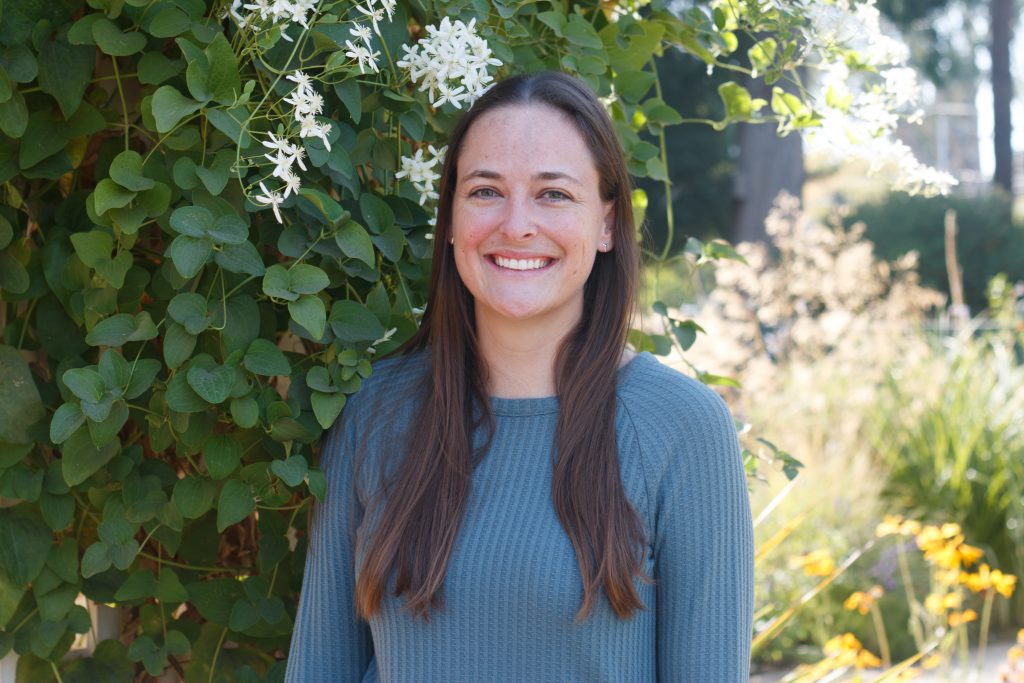
Research Highlights
Research Interests
Drivers of biogeochemical variability in complex coastal habitats.
Coral reef resilience/persistence in the face of climate change.
Multidisciplinary research to better understand the drivers of variability in coastal environments.
The role of submerged aquatic vegetation in mitigating acidification stress (previous research in tropical seagrass beds and temperate kelp forests).
Heidi Hirsh, Ph.D.
Assistant Scientist (University of Miami/CIMAS), Ocean Chemistry and Ecosystems Division
253.514.2804
“I am passionate about solution-driven science to enhance resilience in coral reefs, other coastal ecosystems, and stakeholder communities facing the compounding stressors of climate change.”
Understanding the drivers of nearshore biogeochemical variability is critical for evaluating how coral reefs will respond to present and future ocean acidification (OA) stress. To meaningfully predict nearshore OA impacts, we must account for the complexity of the local benthic community, as well as connectivity between offshore chemistry and onshore conditions. Estimation of nearshore residence time can help quantify this connectivity and determine the degree to which benthic metabolism can influence the chemistry of the overlying water column. Dr. Hirsh is developing a predictive model for nearshore carbonate chemistry variability in Guam (Mariana Islands) and will soon expand this work to the Florida Keys. Her model relies on estimates of local hydrodynamics paired with observed spatial and temporal patterns in the reef carbonate system based on samples collected by NOAA’s National Coral Reef Monitoring Program (NCRMP) over the past decade. Together, records of benthic composition, residence time, and oceanic carbonate chemistry allow us to better describe the environmental and ecological drivers of reef-scale processes modifying local biogeochemistry.
Current Work
Heidi’s research evaluates how the unique characteristics of an ecosystem – benthic composition, residence time, and baseline chemistry – together drive nearshore biogeochemical variability and thus the degree of stress exposure a given coral reef experiences. By developing statistical models with skill to predict nearshore carbonate chemistry from these characteristics, we can identify sites that are more resilient to current stressors and future change.
2021, Ph.D., Earth System Science, School of Earth, Energy, and Environmental Science, Stanford University, Stanford, CA
2019, M.S. Earth System Science, School of Earth, Energy, and Environmental Science, Stanford University, Stanford, CA
2012, B.S. Marine Science, Minor Environmental Studies, University of San Diego, San Diego, CA
- Hirsh, H.K., T.A. Oliver, H.C. Barkley, J.L.K. Wren, S.G. Monismith, D.P. Manzello, and I.C. Enochs. Predicting coral reef carbonate chemistry through statistical modeling: Constraining nearshore residence time around Guam. Aquatic Geochemistry, 29(2):73-94, https://doi.org/10.1007/s10498-023-09411-6 2023
Ref. 4234 - Palacio-Castro, A.M., I.C. Enochs, N. Besemer, A. Boyd, M. Jankulak, G. Kolodziej, H.K. Hirsh, A.E. Webb, E.K. Towle, C. Kelble, I. Smith, and D.P. Manzello. Coral reef carbonate chemistry reveals interannual, seasonal, and spatial impacts on ocean acidification off Florida. Global Biogeochemical Cycles, 37(12):e2023GB007789, https://doi.org/10.1029/2023GB007789 2023
Ref. 4371 - Traiger, S.B., B. Cohn, D. Panos, M. Daly, H.K. Hirsh, M. Martone, I. Gutierrez, D.A. Mucciarone, Y. Takeshita, S.G. Monismith, R.B. Dunbar, and K.J. Nickols. Limited biogeochemical modification of surface waters by kelp forest canopies: Influence of kelp metabolism and site-specific hydrodynamics. Limnology and Oceanography, 67(2):392-403, https://doi.org/10.1002/lno.11999 2022
Ref. 4159
Stanford Earth Special Service Award for Diversity, Equity, and Inclusion 2021
Recognizing outstanding individual long-term contribution to DEI at Stanford University
MARINE Inter-institution Synergistic Grant (Hirsh, McPherson, Eddy) 2020
Creating a collaborative Unmanned Aerial System (UAS) network by bringing together regulators, scientists, and wildlife monitors through a series of region-wide workshops.
ARCS (Achievement Rewards for College Scientists) Fellow 2019-2020
MARINE Inter-institution Synergistic Grant (Hirsh, Lummis, White) 2019
Evaluating Drone Survey Methods to Inform Coastal Resource Management.